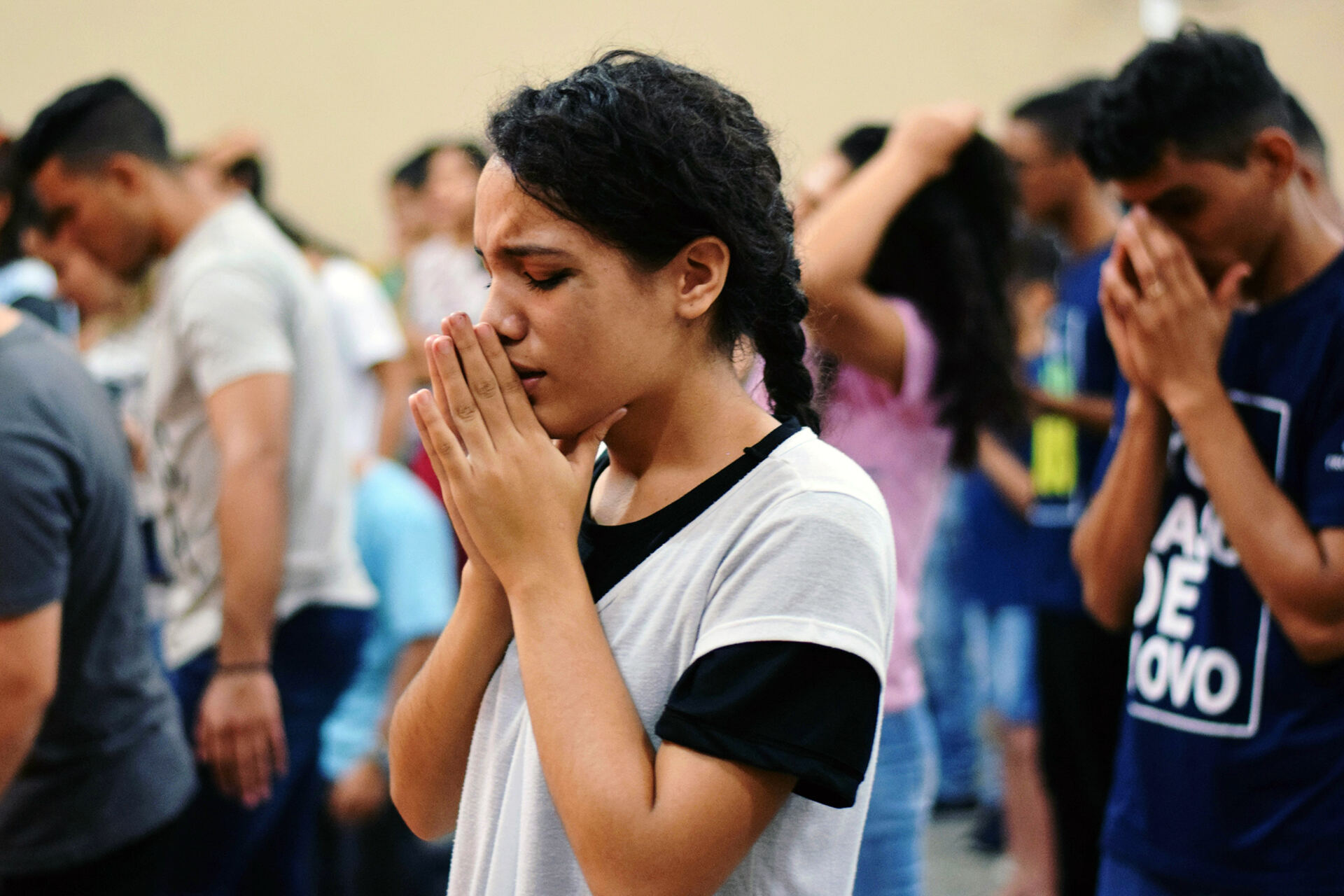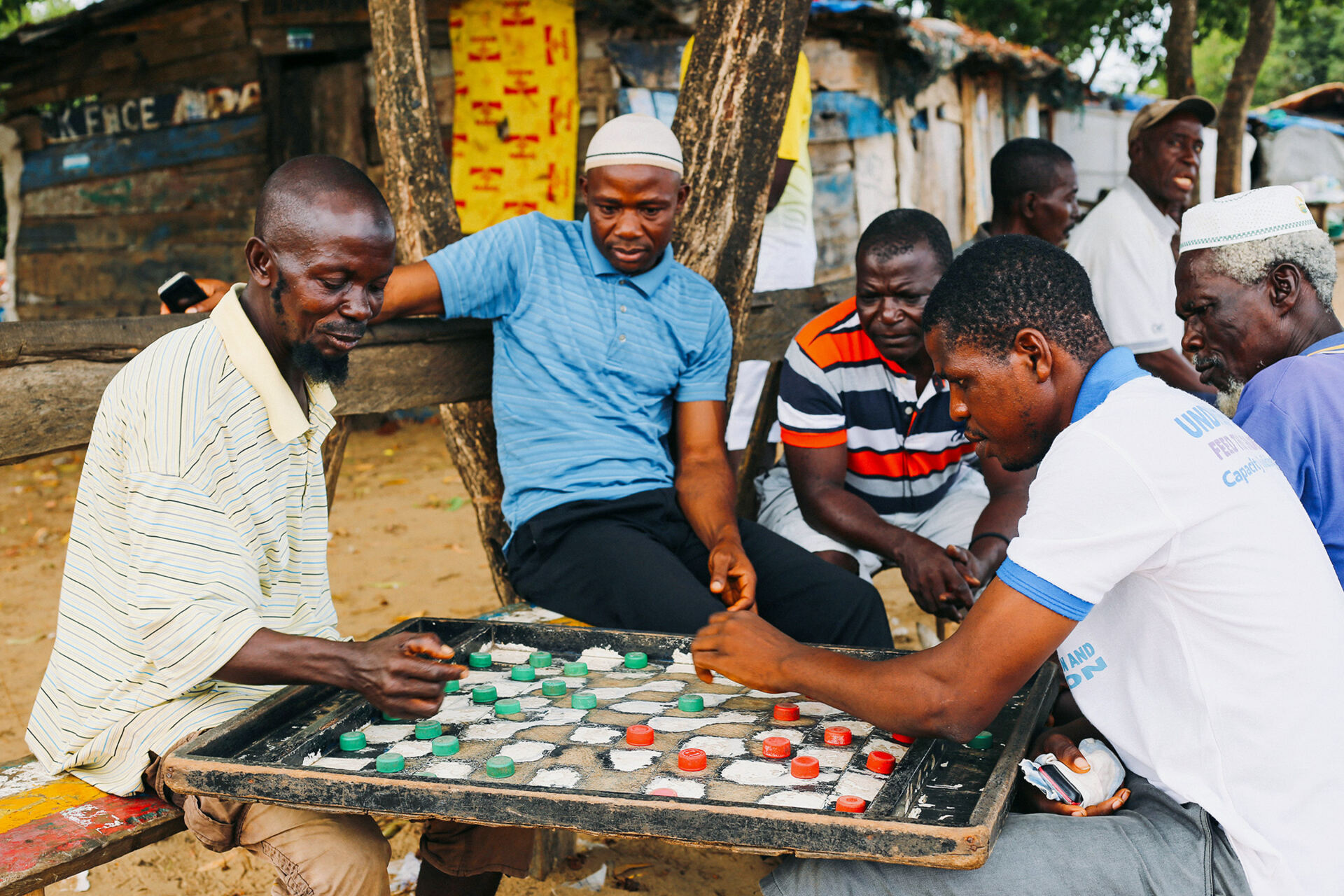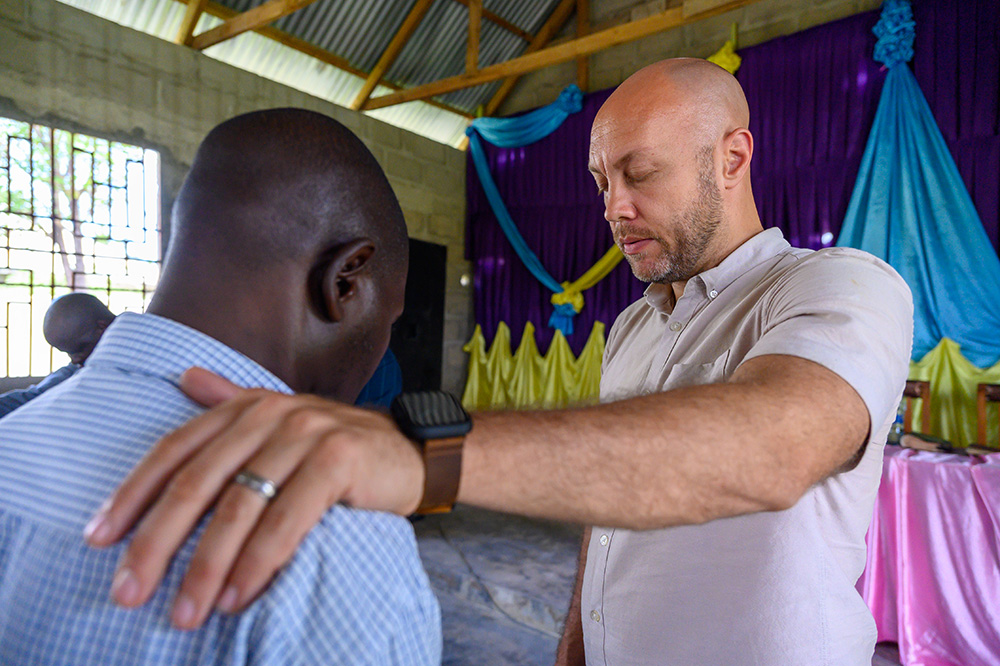Off France’s northern coast is a scenic tidal island hosting a breathtaking fortress, Mont-Saint-Michel, just a few hundred yards from shore. Throughout its long history, the settlement has served as a monastery, a prison, and most recently, a tourist site. Its surreal aesthetic, with its layers of medieval architecture mounded atop so small a geographic footprint (only about one and a half square miles), was Peter Jackson’s inspiration for the model of Minas Tirith used in “The Lord of the Rings” film franchise.
Yet what strikes me the most about this historical site is its location: Normandy. Nowadays, the surrounding beach is serene and open to any number of tourists and religious pilgrims. But imagine the absurdity of attempting to visit the island, say, on June 6, 1944.
Person A: “How was your trip?”
Person B: “The monastery was beautiful, but the beach was a bit noisy.”
We chuckle at this fictional exchange because we know the history of the D-Day invasion. Moreover, we understand the power of expectations. If we visit a war zone expecting a vacation, we will be disappointed. Yet if we find ourselves in the fray of battle and escape with our lives, any inconvenience is outweighed by our gratitude for having survived.
In his letter to the Philippians, one of Paul’s major aims is to set proper expectations for his readers. Even in this epistle centered on joy (or, especially in it), the apostle tells the believers in Philippi that “it has been granted to you that for the sake of Christ you should not only believe in him but also suffer for his sake, engaged in the same conflict that you saw I had and now hear that I still have” (1:29-30). Paul is setting the stage for his readers’ understanding of the Christian life on mission as one of suffering and conflict. Yet Paul does not stop at adjusting the Philippians’ expectations—he also grounds them in a theology of God’s providence in persecution.
Paul had previously left Philippi knowing he’d face opposition (Acts 20:6). Paul may have written his epistle to the Philippians from house arrest in Rome, where, despite his confinement, he enjoyed considerable freedom to preach the gospel to visitors coming and going (28:30-31).
This church cared deeply for Paul, whom they supported financially as a missionary (Philippians 4:15). The Christians there regarded themselves as partners in ministry with him (1:5-7) and were prone to worry when they heard that Paul’s coworker Epaphroditus was sick (2:6). Hence, Paul speaks to them in an affectionate tone: “I want you to know, brothers . . .” (1:12). He comforts them with the reality that not only is God sovereign over his detainment for the gospel but also that he expressly ordained it for evangelistic ends. Just as God meant the patriarch Joseph’s trials for good, though his brothers meant it for evil (Genesis 50:20), so too God intended Paul’s circumstances for the advance of the gospel.
The word rendered “advance,” prokopḗ, could literally be translated something like “forward-chop.” The image is of a band of pioneers chopping through forest or of a line of soldiers cutting through opposing forces to march onward. Paul is saying that the gospel is progressing by removing obstacles in its way, through the power of the Lord.
How did God use Paul’s imprisonment to advance the gospel? By making known to the whole praetorian guard that Paul is imprisoned for the cause of Christ (v. 13). The original phrasing in Greek is something like, “My chains became manifest as in Christ.” Not only are Paul’s chains “in Christ,” but the manifesting, revealing, or making known is also in Christ, too. The Lord is not only at work in orchestrating Paul’s detainment in his sovereign will; the Lord is also at work in the resulting publicity.
Scholars debate who the “praetorium” is in verse 13. It could refer to the soldiers in Caesar’s palace, hence why Paul references believers in Caesar’s own household (Philippians 4:22). It could also simply be a broader reference to the praetorian regiment in the Roman military. Either way, Paul says that “all the rest” are learning of Christ through his situation. Whether the news was circulating geographically from the palace to the rest of Rome, or socially throughout the varied Roman military ranks, the name of Christ was spreading. This gave Paul a launch point for evangelism—little wonder, since Paul may have been chained to his guard at that time!
Paul’s expectations had already been set. The Lord had revealed to him at his conversion “how much he must suffer for the sake of my name” (Acts 9:16). Not long after leaving Philippi, Paul commented, “I am ready not only to be imprisoned but even to die . . . for the name of the Lord Jesus” (21:13). Suffering was baked into the equation of Paul’s missionary journey, and he lovingly sought to incorporate it into the Philippians’ expectations for a life of mission as well. Suffering itself is not an essential good, but it becomes ultimately good as an instrument in the Lord’s hand to advance his kingdom. That lesson, in essence, was captured in the second-century church father Tertullian’s adage: “The blood of the martyrs is the seed of the church.”
A friend of mine was arrested a few years ago during a peaceful, public, outdoor psalm-sing during the height of the pandemic. The story quickly made national news, giving him a platform from which to openly name the name of Christ. In time, the city dropped its charges, yet he was derided not only by political adversaries but by fellow believers. Sincere Christians may indeed differ with one another in where they draw ethical lines on matters of civil disobedience. But what Christians cannot disagree with is the expectation of hardship—even opposition from those in power—in the Christian life as the means God uses to advance gospel witness. My fear is that too many of the evangelical critics failed to learn that disruptive witness prompts opposition.
What are our expectations of life on mission as believers? If we expect a casual tour of a beach islet, our tendency will be to withdraw at the first sight of conflict. But if we heed Paul’s reminder that suffering, even imprisonment, can serve to spread the name of Jesus, we will be better equipped to strive in evangelism.
Prayer:
Father,
You have sent me as you have sent Christ to be about your name and fame in the world. Far too often I expect a life of ease, and I become bitter when my expectations are dashed. Help me to look for opportunities to witness through unexpected and even painful circumstances. Advance your cause through my life in this way.
In Jesus’ name,
Amen.
Prayer Requests:
- Pray for your church, your family, and yourself to recognize God’s purposes in the opposition we face in the broader culture and to be emboldened in witness.
- Pray for believers, pastors, and missionaries suffering under hostile regimes across the world. Ask God to give them the right words to say, and pray for justice to be done in their release.
- Pray for ABWE missionaries to expect and even embrace difficulty as they persevere in ministry.






